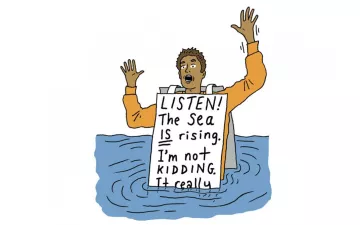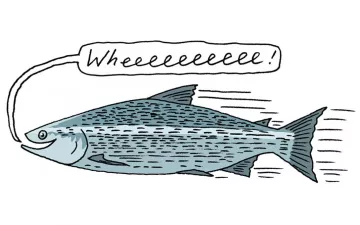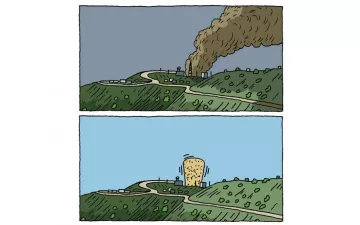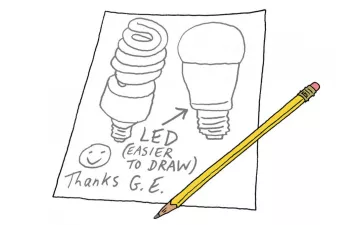ICYMI: Environmental News Roundup
All the environmental news you missed in the past two months
January 2016 is the planet's warmest January on record. February is the warmest February--by far.

Sea levels are rising faster now than at any time in the past 2,800 years. If greenhouse gas emissions continue at a high rate, oceans could rise by three to four feet by 2100.
President Barack Obama declares three new national monuments in California: Mojave Trails, Sand to Snow, and Castle Mountains.

An agreement is reached to remove four dams from the Klamath River in southern Oregon and northern California, starting in 2020. This will be the largest dam removal in U.S. history, allowing the Klamath to run free for 233 miles for the first time in more than a century.
The EPA estimates that methane emissions from the oil and gas industry are 27 percent higher than previously thought. The climate impact over 20 years will be equivalent to that of 200 coal-fired power plants.
The 41-day armed occupation of a national wildlife refuge in Oregon ends with the arrests of the occupiers on federal criminal charges.
AC-4, the 35-year-old California condor that was captured in 1985 for a captive-breeding program, is released back into the wild.
Thirteen bald eagles are found dead on a Maryland farm. They may have been poisoned.
Nevada's Public Utilities Commission hobbles the state's rooftop solar industry by allowing utilities to charge solar-panel users higher rates and fees. The action is expected to cost the state thousands of jobs.

The massive methane leak in California's Aliso Canyon is finally capped, but not before releasing more than 100,000 tons of methane, the largest such leak in U.S. history.
The Supreme Court suspends implementation of President Obama's Clean Power Plan, which would regulate greenhouse gas emissions from coal-fired power plants. It is the first time the court has ever halted a regulation before it was reviewed by a federal appeals court.

General Electric will stop manufacturing compact fluorescent lightbulbs this year in favor of even-cheaper, more-efficient LED bulbs.
Lake Poopo, Bolivia's second-largest lake, dries up.
Copenhagen divests itself of all holdings in coal, oil, and gas.
El Salvador advises women to avoid having babies for the next two years because of the spread of the Zika virus, which apparently is linked to an increase in microcephaly in tropical nations.
Berta Caceres, a Honduran environmental activist who won the Goldman Prize last year for her efforts to block the Agua Zarca dam, is assassinated in her home.
The U.S. Fish and Wildlife Service declares Yellowstone grizzly bears to be successfully recovered and calls for their delisting from the endangered species list--a move that could open the door to grizzly hunting.
A koala at the Los Angeles Zoo is killed, apparently by P-22, a mountain lion that lives in neighboring Griffith Park.
 The Magazine of The Sierra Club
The Magazine of The Sierra Club